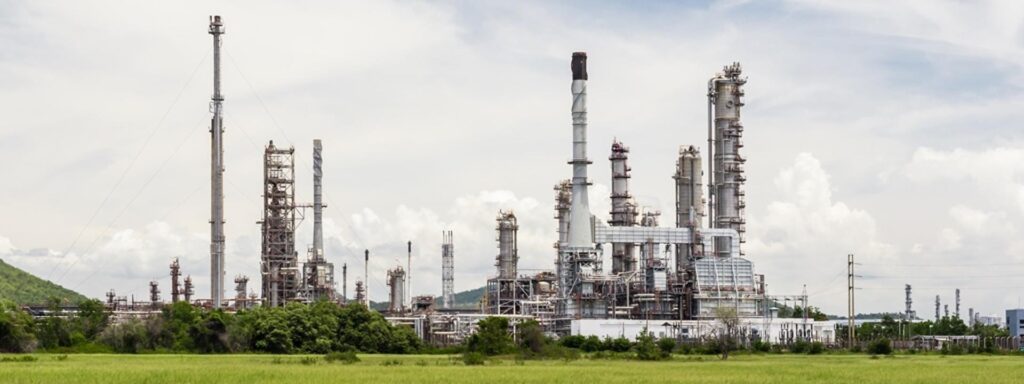A multibillion-dollar oil development in Uganda is stirring controversy as concerns mount over its impact on the health and livelihoods of local communities. While the project promises significant economic benefits and energy growth for the East African nation, residents living near the extraction sites report rising health issues and disruptions to their traditional ways of life. NPR’s investigation sheds light on the complex challenges faced by these communities amid Uganda’s burgeoning oil boom.
Oil Project Spurs Economic Growth While Raising Health Concerns Among Ugandan Communities
The sprawling oil development in Uganda has injected unprecedented capital into the region, transforming local economies virtually overnight. Infrastructure has improved, with new roads and schools springing up alongside the energy facilities. Many communities have found new employment opportunities, fostering a sense of optimism about future prospects. However, this rapid expansion has also disrupted traditional livelihoods, particularly agriculture and fishing, which remain lifelines for many families.
Alongside economic gains, health specialists and residents have voiced growing concerns about pollution and related illnesses. Reports highlight an uptick in respiratory problems and waterborne diseases, attributing these trends to oil spills and increased chemical exposure. Local health clinics are struggling to keep pace with demands, and there are calls for greater transparency and stricter environmental oversight to safeguard vulnerable populations. Key issues raised by the affected communities include:
- Air quality deterioration caused by flaring and emissions
- Contaminated water sources impacting drinking and irrigation
- Lack of adequate healthcare facilities near oil extraction zones
| Impact Area | Economic Benefit | Health Concern |
|---|---|---|
| Employment | Thousands of new jobs | Occupational hazards |
| Infrastructure | Improved roads and schools | Displacement of local villages |
| Environment | Increased national revenue | Air and water pollution |
Environmental and Social Impacts Threaten Traditional Livelihoods in Oil-Rich Regions
In Uganda’s oil-rich Albertine Graben, communities face mounting challenges as environmental degradation and social disruptions unsettle traditional ways of life. The large-scale oil extraction has led to contamination of water sources and loss of arable land, jeopardizing fishing and farming – the primary means of sustenance for many local families. Residents report increased health issues, including respiratory problems and skin conditions, attributed to pollution and chemical leaks associated with the oil operations.
Beyond ecological damage, the influx of workers and rapid industrialization have strained social cohesion, sparking conflicts over land rights and resource access. Many locals have been displaced with little compensation, while promised community benefits remain slow to materialize. The following table highlights key impacts experienced by affected communities:
| Impact Category | Observed Effects | Community Concern |
|---|---|---|
| Environmental | Water pollution, soil degradation | Loss of fish stocks, poor crop yields |
| Health | Respiratory diseases, skin ailments | Limited access to medical care |
| Social | Displacement, land disputes | Weakened traditional leadership |
- Increased income inequality as oil revenues concentrate among few.
- Cultural erosion with younger generations migrating for urban jobs.
- Growing tensions between indigenous communities and oil companies.
Experts Call for Stricter Regulations and Community Engagement to Mitigate Adverse Effects
Environmental and health experts emphasize the urgent need for stricter government oversight to address the harmful consequences linked to the oil development in Uganda. They warn that without comprehensive policies and rigorous enforcement, local communities will continue to suffer from deteriorating water quality, increased respiratory illnesses, and loss of arable land. Authorities are urged to implement continuous monitoring mechanisms and ensure full compliance with environmental regulations throughout all phases of the project.
In parallel, specialists advocate for active community engagement initiatives that foster transparent communication and empower residents to participate in decision-making processes. Locals should be provided with accessible information and resources to mitigate risks and adapt sustainably. The experts propose collaborative platforms where government officials, oil companies, and community leaders co-develop solutions, including:
- Health impact assessments conducted regularly
- Training programs focusing on environmental stewardship
- Establishment of local grievance redress mechanisms
| Proposed Measure | Expected Outcome |
|---|---|
| Enhanced Environmental Monitoring | Early detection of pollution sources |
| Community Health Workshops | Improved disease prevention awareness |
| Transparent Licensing Processes | Reduced corruption and increased accountability |
Future Outlook
As Uganda presses forward with its ambitious oil development plans, the voices of those most affected-the local communities-underscore the complex balance between economic progress and human well-being. While the project promises significant national revenue, the growing concerns over health risks and disruptions to traditional livelihoods highlight the urgent need for comprehensive safeguards and transparent dialogue. How Uganda navigates these challenges will be pivotal not only for the success of its oil sector but also for the future of its communities.
